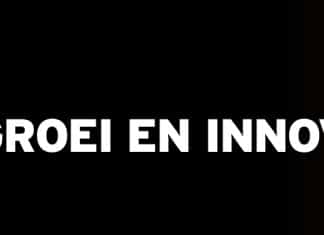Estimated reading time: 5 minutes
- The most commonly used business entity is a producer holding the farm in his or her personal capacity.
- The problem with this practice is that there is no separation between the property, farm and the farm’s business activities. If the farming enterprise goes bankrupt, the farm will also be used to pay creditors.
- Producers are sometimes advised to operate the farm in his or her own name in a bid to exploit the lower tax rates afforded to small enterprises. What the producer wins is, however, lost when wealth taxes such as estate duty and capital gains tax are charged upon his or her death.
- Another trend is producers transferring their farms to a family trust and continuing to conduct the farm’s business in his or her personal name.
- The company structure combined with a family trust is the best entities that fit the producer’s objectives.
Producers might ask themselves what the best business entity is to use for the farming enterprise. Various factors play a role, and the entity and business structure chosen will vary from producer to producer.
The most commonly used business entity is a producer holding the farm in his or her personal capacity, which means the farm is registered in his or her name at the deeds office, and business is conducted in the producer’s own name. This is often the case where the farm was inherited from a family member.
The problem with this is that there is no separation between the property, farm and the farm’s business activities. If the farming enterprise goes bankrupt, the farm will also be used to pay creditors. Upon the producer’s death, his or her deceased estate will pay estate duty and capital gains tax on the value of the farm and the farming business, often resulting in the forced sale of the farm due to a lack of liquidity in the estate to pay debts and taxes.
Many producers in South Africa find themselves in this predicament. Producers are sometimes advised to operate the farm in his or her own name in a bid to exploit the lower tax rates afforded to small enterprises. What the producer wins is, however, lost when wealth taxes such as estate duty and capital gains tax are charged upon his or her death.
Read more about the ARU project here.
Trusts and close corporations
Another trend is producers transferring their farms to a family trust and continuing to conduct the farm’s business in his or her personal name. There are even cases where the farming business was conducted in a trust.
The advantage of this structure is that the capital growth of the farm’s market value is shifted to the trust, and outside the producer’s personal estate, thereby saving on future estate duties and capital gains tax on the growth. However, moving the farm was probably done on a loan account basis, which means the trust still owes the purchase price of the farm to the producer. This amount remains an asset in the producer’s estate upon which he or she will pay estate duties and in some cases capital gains tax.
Section 7C of the Income Tax Act, 1962 (Act 58 of 1962) taxes such loans if the loans are interest free. Another benefit is that ownership of the property and farming business has been separated. This allows the producer to rent the farm from the trust, and deduct the rent as an expense from his or her farming profits. However, it loses sight of the fact that the trust will pay the highest possible income tax rate (45% from rand one).
In the past, the use of a close corporation (CC) was popular, mainly due to the cheaper accounting and set-up costs. Since the new Companies Act, 2008 (Act 71 of 2008) came into effect, no new CCs can be formed and a private company now offers the same advantages as a CC.
Read more about how to bolster your farm’s resilience.
Options for today’s circumstances
The company structure combined with a family trust is the best entities that fit the producer’s objectives. If the farm is held by a company, and the farming business in another company, renting the farm can create a tax deduction in the trading company, while the farm holding company will be taxed on the rental income after capital allowances.
If the shares in the companies are held by a family trust, the farm and farming business are effectively outside the personal estate of the producer, resulting in an estate duty and capital gains tax savings. It further safeguards the farm when the farming business is in financial trouble, although financing through financial institutions might water this advantage down due to, for example, mortgage security over the farm.
Separating the farm and farming business also provides a form of protection if a farm is expropriated without compensation, or for less than market value. The company owning the farm and the trading company enter into a long-term notarial lease (e.g. 50 years) that is registered against the title deed of the farm. If expropriated, the rights of third parties, such as a lessee or the farm trading company, must be honoured, resulting in the producer continuing with his or her farming activities on the farm for the remainder of the lease period.
This business entity structure means the producer can externalise ownership of the farm and farming business offshore (Mauritius, Seychelles or other jurisdictions), thereby becoming a foreign investor. This affords the producer the opportunity to get a reward granted for compensation of his or her farm when expropriated, in international tribunals, and which could be enforced against the state in South Africa.
Follow-up articles in this series will discuss many of the issues mentioned here in greater detail. – Gideon Robbertse, GR Attorney
For enquiries, contact Gideon Robbertse on 072 788 3596 or gideon@grattorney.co.za, or visit www.grattorney.co.za.





